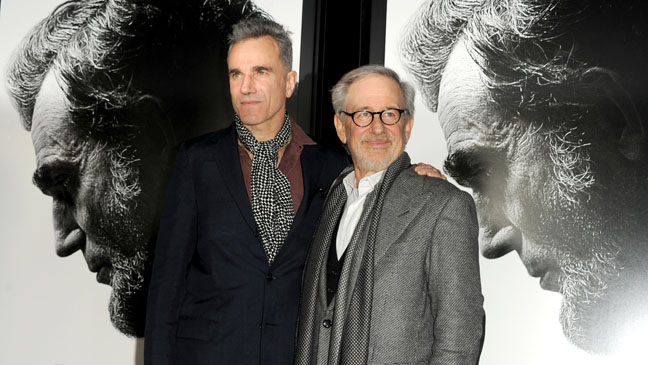Only months out from the successes of Lincoln and their spiritual follow-up, Obama, Steven Spielberg and Daniel Day-Lewis are reported to have something of a political hat trick in mind. According to Deadline, the helmer has taken sufficient interest in a war on terror-based book by the title of Thank You For Your Service, for which a film adaptation is being cobbled by Warner Bros. and to be scripted by Jason Dean Hall — himself the screenwriter behind American Sniper, the presumed next project on Spielberg‘s plate. (Oh, how these Tinseltown connections spring up before our very eyes.) He wants the Irishman to star, so we’ve now wound up here.
Similarly tackling an Iraq veteran’s post-combat struggles, albeit more explicitly, the David Finkel-penned source material angles toward the struggles so often endured by soldiers forced into societal reintegration with little help from superiors or proper understanding from loved ones. It’s a crux which sounds decidedly different from the more grand, operatic tale of Lincoln — more single-person drama and greater verisimilitude is probably an essential in getting this tale as intended — all of which is rather good; a move elsewhere should require changes in rhythm and different results for the pair. (All of which is said by a great admirer of last fall’s effort.)
News of a self-imposed, five-year break from the craft would typically rule out Day-Lewis‘ involvement, though the chance to act under Spielberg‘s gaze yet again might be about as good an excuse as he would need to jump back earlier. The majority of us would struggle to complain about this broken promise.
A longer description of the book can be found at Amazon:
“No journalist has reckoned with the psychology of war as intimately as David Finkel. In The Good Soldiers, his bestselling account from the front lines of Baghdad, Finkel shadowed the men of the 2-16 Infantry Battalion as they carried out the infamous surge, a grueling fifteen-month tour that changed all of them forever. Now Finkel has followed many of those same men as they’ve returned home and struggled to reintegrate—both into their family lives and into American society at large.
In the ironically named Thank You for Your Service, Finkel writes with tremendous compassion not just about the soldiers but about their wives and children. Where do soldiers belong after their homecoming? Is it possible, or even reasonable, to expect them to rejoin their communities as if nothing has happened? And in moments of hardship, who are soldiers expected to turn to if they feel alienated by the world they once lived in? These are the questions Finkel faces as he revisits the brave but shaken men of the 2-16.”
What are your thoughts on Spielberg and Day-Lewis stepping back into the spotlight together?


